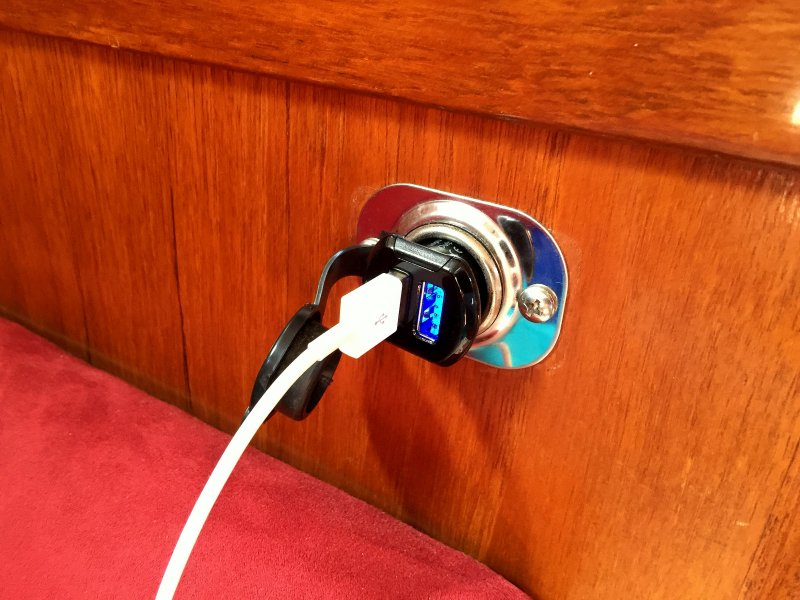Please forgive the ignorant questions. I searched in the forum but I might be more confused than ever now. 
I have a Hunter 240. It has an electric start motor, cabin and running/nav lights, and a bilge pump. There are two 12volt power outlets that I have not used but might like to be able to use when overnighting to charge phones, etc. (if that's possible with our power setup). I think that's it for consumption.
There is a trickle charger hooked up to the battery.
We're on an inland lake, on a moor. I have access to shore power if I dock the boat and plug in the charger temporarily while we're tied up.
I have no idea how long to expect the battery to last under normal conditions before it would no longer start the motor or run the lights. It's a total guessing game. I just occasionally try to get to the dock and charge for a while.
I am thinking it might be smart to get a small solar panel that would keep it charged and also help out when we are overnighting on a weekend. I don't understand how large a panel I would need.
Any thoughts or advice would be appreciated! Feel free to point me to other resources.
Chris
I have a Hunter 240. It has an electric start motor, cabin and running/nav lights, and a bilge pump. There are two 12volt power outlets that I have not used but might like to be able to use when overnighting to charge phones, etc. (if that's possible with our power setup). I think that's it for consumption.
There is a trickle charger hooked up to the battery.
We're on an inland lake, on a moor. I have access to shore power if I dock the boat and plug in the charger temporarily while we're tied up.
I have no idea how long to expect the battery to last under normal conditions before it would no longer start the motor or run the lights. It's a total guessing game. I just occasionally try to get to the dock and charge for a while.
I am thinking it might be smart to get a small solar panel that would keep it charged and also help out when we are overnighting on a weekend. I don't understand how large a panel I would need.
Any thoughts or advice would be appreciated! Feel free to point me to other resources.
Chris



